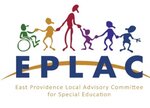Health Literacy Commission issues report
State House – The Special Legislative Study Commission to Study the Topic of Health Literacy, chaired by Sen. Louis P. DiPalma (D-Dist. 12, Middletown, Little Compton, Newport, Tiverton), issued its report tonight at a meeting of the commission. Health literacy, according to the legislation (2016-S 2594) which created the commission, is the degree to which individuals have the capacity to obtain, process, and understand basic health information and services needed to make appropriate health decisions.
“When the health literacy commission was started, we set out to determine a better way to increase health literacy to avoid costly measures such as emergency room visits and extended hospitalizations for diseases and conditions that could have been prevented or treated differently before such extreme measures needed to be taken. The commission was dedicated in their hard work studying Rhode Island’s health literacy. And while we found some troubling facts regarding Rhode Islanders’ understanding of the healthcare system, we also believe our recommendations can lead to a healthy Rhode Island that will still deliver top-notch care while keeping costs down for patients,” said Senator DiPalma.
According to research studies, people with limited health literacy skills are more likely to skip important preventive measures, are more likely to have chronic conditions, and are less able to manage these conditions effectively. In addition, people with limited health literacy have shown a higher rate of hospitalization and use of emergency services, resulting in higher health care costs.
The commission found that a lack of health literacy among the American population negatively impacts individual health and drives up healthcare costs, with the problem being particularly acute for certain sub-demographics. Also, improving health literacy at an early age has a direct impact on health literacy later in life and a specific health literacy curriculum is required to achieve proficiency.
The commission also found that healthcare providers must have a strong education in health literacy and understand the consequences of illiteracy to reduce its negative impact on health outcomes; cultural and linguistic competence are essential in engaging and educating patients about their healthcare; patient engagement is necessary when discussing policy initiatives related to healthcare, health reform, and health literacy; a significant proportion of adults in Rhode Island and nationwide have difficulty understanding their health insurance plans; a failure to understand health insurance plans negatively impacts an individual’s health and their decision making abilities; and that Rhode Island’s readability requirement does not solve the issue of health insurance illiteracy.
In response to the commission’s findings regarding health literacy, the commission made several recommendations, including a plan to develop a statewide toolkit aimed at assisting public and private schools, community groups, and healthcare providers to support the current level of health literacy among Rhode Islanders. The commission recommended to incorporate health literacy into elementary and secondary education health standards developed through a collaboration among community health organizations, healthcare providers, health insurance providers, the RI Department of Health (RIDOH), the RI Department of Education (RIDE), and other stakeholders.
The commission also recommended integration of health literacy training into the curriculum for medical students and encouragement of licensed professionals to utilize various training resources available at the state and national level; creation of specific programs and strategies to educate the most vulnerable populations, such as the elderly, individuals with disabilities, and individuals suffering from mental illness; and ensuring that consumer advocates are included in health reform efforts by establishing a Consumer Advisory Board that is person-centered, culturally and linguistically competent, disability sensitive, and addresses the care and delivery of services through informed decision making and advocacy.

















Comments
No comments on this item Please log in to comment by clicking here